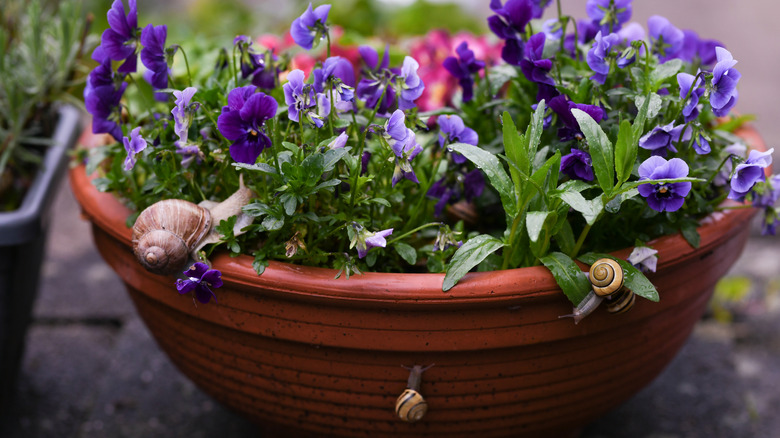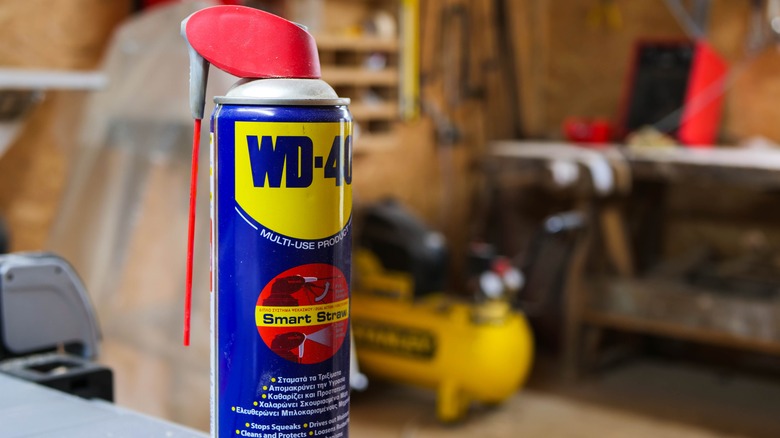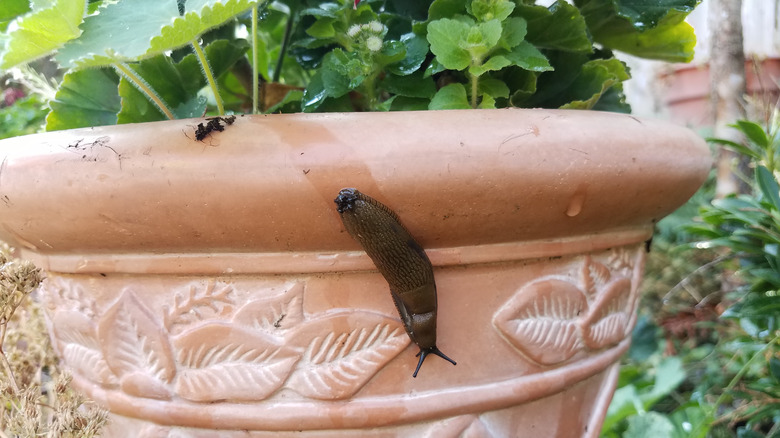The Beyond Genius WD-40 Trick That Keeps Slugs & Snails Out Of Your Plant Pots
Slugs and snails might be charming in children's books, but serious and amateur gardeners alike know that they can wreak havoc in gardens. They like to make a buffet out of your potted plants, chewing through the leaves and leaving behind irregular holes and chewed edges. But WD-40 can help keep them away from your potted plants.
Not only do slugs and snails leave unsightly bite marks all over your carefully cultivated leaves, but they can also make them more susceptible to diseases and other pests. That's because the plant becomes vulnerable when wounded, allowing pests to swoop down when its defenses are down. This is especially true of young plants like seedlings. Because of that, it's in your best interest to protect your plants from these curious garden wanderers. Luckily, all you need to do is grab a can of WD-40 from your garage. Here's how to do it.
How to use WD-40 to keep slugs and snails at bay
This WD-40 gardening hack is best used on potted plants and will work like a charm. All you need to do is have a can of WD-40 ready by the door after it rains. Slugs and snails typically come outside after it drizzles or pours because they are most active during damp or humid conditions. That's because they estivate when it's dry, which is a type of summer hibernation. So once it becomes wet out, go outside with your WD-40 and spray the outside of your pots to make them too slick for the pests to climb.
The best place to spray is right in the middle of the pot. You want the ring of WD-40 to be at least three to four inches wide so the slug can't cross. This creates an effective barrier and keeps them from climbing forward. You also want to avoid greasing the lip of the pot because it might eventually dirty you when you brush your leg against it when gardening or walking past.
Some caveats to keep in mind
You want to use this WD-40 hack only for potted plants for several reasons. First, it won't work as effectively on soil because slugs and snails aren't fighting against gravity when trying to cross the dirt. They are when climbing a planter, though, making the lubricant extra-effective at making them lose their grip.
Second, you don't want the lubricant to directly touch the plant or its soil. If sprayed directly on the plant, it can burn the leaves, causing more damage than the slugs and snails would. You also don't want to let it get into the soil, especially for garden fruits and vegetables, because the plant will eventually ingest its toxic chemicals. One of WD-40's main ingredients is a group of chemicals known as petroleum distillates, which is dubbed a toxin by world health organizations like the CDC. You definitely don't want that showing up in your tomatoes, so be sure to steer clear.


